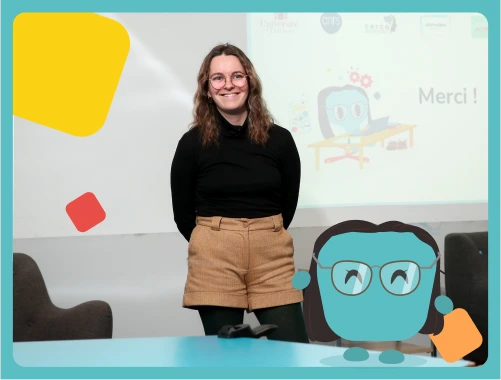- News
Game in Lab honors its women researchers on the occasion of the International Day of Women and Girls in Science

Women in science
Since its creation in 2018, Game in Lab has been encouraging and supporting research on board games, welcoming women doctoral students under a CIFRE contract, and financing international research projects on board games.
While UNESCO reports that currently only 33% of researchers worldwide are women––which says a great deal about the inequalities that continue to persist in the fields of research and science––Game in Lab seems more willing to work toward parity as 45% of the researchers it supports are women.
Elsa Brais, Gray Atherton, Melissa Rogerson, Chloé Germaine, Anick Pelletier, Léa Martinez, Ariela Holanda, Marion Sourd, Rebecca Sayeck, Gabrielle Trépanier Jobin, etc.: Game in Lab is proud to honor all these women of science on February 11 every year.
Two researchers specializing in metacognition
Two of our researchers––Léa Martinez, a doctoral student in cognitive psychology, and Anick Pelletier, orthopedagogue, founder of Optineurons Clinic and leader of the JeuMETACOGITE research project––are studying the impact of games on cognitive functions.

Léa Martinez
Supported by Game in Lab, Léa Martinez is preparing a thesis at the CeRCA laboratory of the University of Poitiers. Focusing on “the impact of playing board games on the development of cognitive functions”, her research project aims to better understand the links between playing board games and the development of certain cognitive functions, which are essential in many cases of learning. Léa Martinez has presented the progress of her research at international events on several occasions, including at Educators’ Day in Essen, Germany, and at ESCOP, an international cognitive sciences congress. She has also published an often-cited article on entertaining games and learning at school.

Anick Pelletier
For twenty years, Anick Pelletier has been using assessment and remediation in her work with students with physical disabilities or with adaptation or learning difficulties (EHDAA).
Since beginning her work in the educational field, she has developed expertise in the complete treatment of executive functions and other cognitive and instrumental functions necessary to develop learning, thereby creating pedagogy using the OptiFex game.
In partnership with Game in Lab, she is conducting a research project evaluating the effects of the JeuMETACOGITE program in schools on self-regulation in primary school students (aged nine and ten) through a metacognitive approach using board games. She also participated in the discussions and research that led to the creation of Access+, a range of adapted games for people with cognitive impairment.
